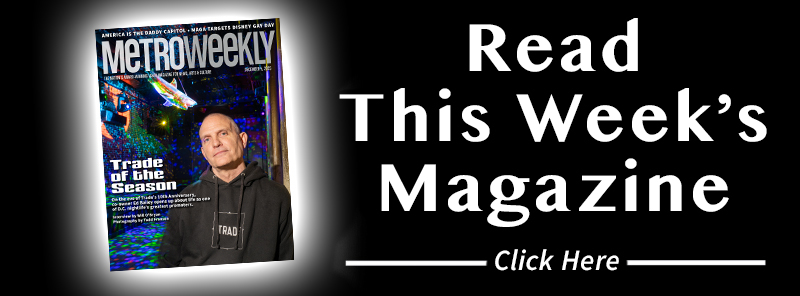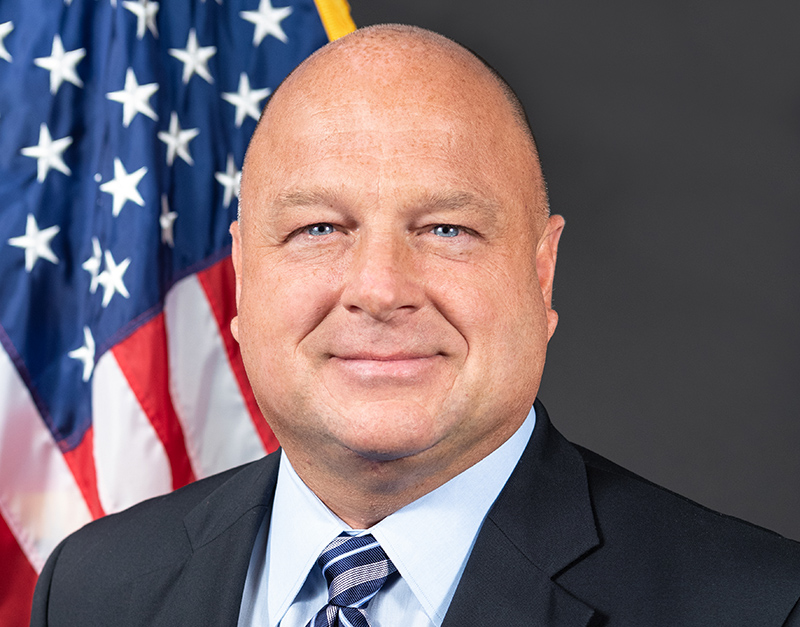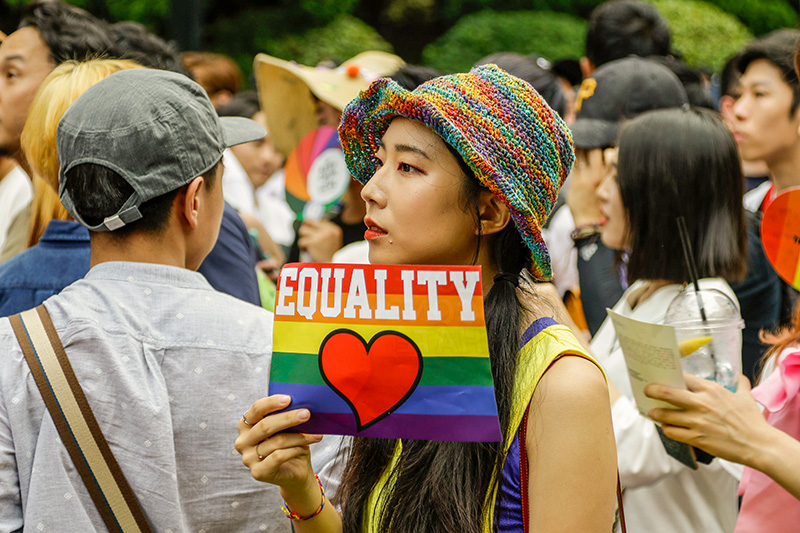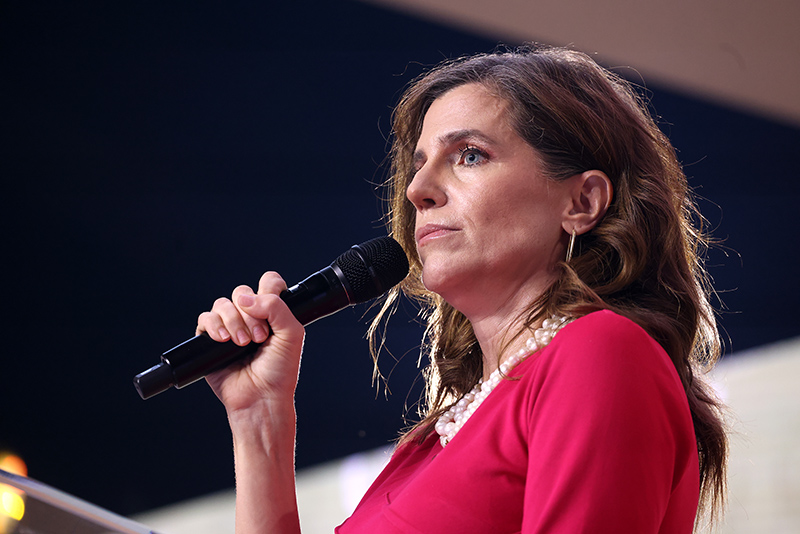UPDATED: The current state of marriage equality
Wondering what's going on with marriage equality? Keep reading.

The marriage equality movement is in the midst of one of the most momentous weeks in its history. Here’s where things stand now:
On Monday, the U.S. Supreme Court declined to hear arguments in cases challenging same-sex marriage bans in five states — Utah, Oklahoma, Virginia, Indiana and Wisconsin — thus allowing lower court decisions legalizing marriage equality in those states to stand.
Because the Supreme Court left intact rulings by the 4th Circuit, 7th Circuit and 10th Circuit Courts of Appeals striking down same-sex marriage bans in those five states, those appeals courts’ decisions applied to six other states in those three circuits: West Virginia, North Carolina, South Carolina, Kansas, Colorado and Wyoming.
On Tuesday, Colorado Attorney General John Suthers instructed county clerks in the state to begin issuing marriage licenses to same-sex couples Tuesday.
“There are no remaining legal requirements that prevent same-sex couples from legally marrying in Colorado,” Suthers said in a statement. “Beginning today, Colorado’s 64 county clerks are legally required to issue licenses to same-sex couples who request them. In addition, the Colorado Department of Public Health and Environment is required to register such marriages in the records of the State of Colorado.”
Also on Tuesday, the 9th Circuit Court of Appeals ruled unanimously that same-sex marriage bans in both Idaho and Nevada are unconstitutional. The three judge panel heard arguments last month considering the bans, as well as Hawaii’s, although the Hawaii ban is defunct since same-sex marriage was legalized by the state Legislature.
Because the governor and attorney general of Nevada have both stopped defending the state’s ban on same-sex marriage, marriage equality was expected to soon become law in the state. Proponents of Nevada’s same-sex marriage ban do not have standing to appeal to the Supreme Court, as established by the high court’s decision to dismiss the case challenging California’s Proposition 8 on the grounds that supporters of California’s same-sex marriage ban did not have standing to appeal. Defendants in Idaho could request an en banc appeal before the full 9th Circuit, which decides whether or not to grant such requests. They could also appeal directly to the Supreme Court.
However, on Wednesday morning, Supreme Court Justice Anthony Kennedy, who oversees the 9th Circuit, temporarily put same-sex marriages on hold. Kennedy was responding to an emergency stay request from Idaho state officials. Hours later, Kennedy lifted his stay on the Nevada decision, opening the door to same-sex couples being able to marry in that state. Kennedy kept in place the stay on the Idaho decision. Meanwhile, in Nevada, U.S. District Court Judge Robert C. Jones, who was nominated to the federal bench by President George W. Bush and upheld Nevada’s same-sex marriage ban in 2012, recused himself Wednesday from having to enforce the decision by the 9th Circuit.
Also on Wednesday, the impact of Monday’s decision by the Supreme Court to not hear cases challenging same-sex marriage bans in those five original states began to spread to other states in those circuits.
According to the Associated Press, a South Carolina judge accepted a same-sex couple’s application for a marriage license. South Carolina is in the 4th Circuit.
In Kansas, a state judge ordered the Johnson County clerk to begin issuing marriage licenses to same-sex couples. Kansas is in the 10th Circuit.
In North Carolina, U.S. District Judge William Osteen lifted a stay on proceedings for two cases challenging that state’s same-sex marriage ban and appears poised to strike down the bans. Should Osteen rule quickly, marriage licenses could be issued to same-sex couples very soon. North Carolina is also in the 4th Circuit.
UPDATE at 6:15 p.m., Oct. 8: The Coalition for the Protection of Marriage, which supports Nevada’s same-sex marriage ban, filed a motion with Justice Anthony Kennedy asking him to stay the ruling striking down Nevada’s same-sex marriage ban. Responding to Kennedy’s stay in the Idaho case, the 9th Circuit Court of Appeals recalled its mandate in the Idaho case pending “further order of this court or the Supreme Court.”
UPDATE at 1:45 p.m., Oct. 9: On Thursday, West Virginia Attorney General Patrick Morrisey announced in a statement he would drop litigation defending the state’s ban on same-sex marriage:
On Oct. 6, 2014, the U.S. Supreme Court decided it would not take up the decision by the U.S. Court of Appeals for the Fourth Circuit to set aside Virginia’s law regarding same-sex marriage. By refusing to consider the appeal, the Supreme Court has caused the Appeals Court’s decision to become final and binding on West Virginia. While we disagree with the Supreme Court’s decision to allow the Fourth Circuit’s opinion to stand and believe it improperly displaces state and local decision-making, we will respect it.
As the state’s Attorney General, it is my duty to defend state laws that have been passed by the state Legislature and are consistent with the Constitution. We have discharged this duty faithfully. In the upcoming days, we will now seek to bring to a close the pending litigation over West Virginia’s marriage laws, consistent with the Fourth Circuit’s now-binding decision.
As we have repeatedly indicated in our court filings, however, others not involved in the litigation will be necessary to actually bring the State into compliance with the Fourth Circuit’s decision. Neither the Attorney General nor the two named county clerks have the power to change uniform state marriage forms and procedures. Only the State Registrar may alter state marriage forms, and the Secretary of State’s Office has authority over marriage celebrants and their ability to solemnize marriages. While we will take steps to seek to end the litigation, the conclusion of the lawsuit cannot and will not alone effectuate the Fourth Circuit’s mandate.
West Virginia Gov. Earl Ray Tomblin issued a statement as well saying same-sex marriages would move forward in the state:
As the attorney general stated today, recent rulings by several federal courts, combined with the refusal of the U.S. Supreme Court to hear this issue, make it clear that laws banning same-sex marriage have been declared unconstitutional. I do not plan to take any actions that would seek to overturn the courts’ decisions. West Virginia will uphold the law according to these rulings, and I have directed state agencies to take appropriate action to make that possible.
Our state is known for its kindness and hospitality to residents and visitors alike. I encourage all West Virginians—regardless of their personal beliefs—to uphold our statewide tradition of treating one another with dignity and respect.
West Virginia is under the jurisdiction of the 4th Circuit Court of Appeals. That federal appeals court’s decision striking down Virginia’s ban on same-sex marriage, which the U.S. Supreme Court left intact, applied to all other states in the 4th Circuit, including West Virginia.
Also on Thursday, the Associated Press reported that Supreme Court Justice Anthony Kennedy’s Wednesday decision to put on hold same-sex marriages in Nevada was a mistake. Although supporters of Nevada’s same-sex marriage ban applied again Wednesday for a stay on the 9th Circuit’s decision overturning the state’s same-sex marriage ban again on Wednesday, they withdrew that request Thursday.
UPDATE at 8:10 p.m., Oct. 9: Marriage equality has come to Nevada. A federal judge issued an injunction Thursday permanently enjoining “the state of Nevada, its political subdivisions, and its officers, employees, and agents, from enforcing any constitutional provision, statute, regulation or policy preventing otherwise qualified same-sex couples from marrying, or denying recognition to marriages celebrated in other jurisdictions which, if the spouses were not of the same sex, would be valid under the laws of the state.”
This is a developing story. Check back with Metro Weekly for updates.
Support Metro Weekly’s Journalism
These are challenging times for news organizations. And yet it’s crucial we stay active and provide vital resources and information to both our local readers and the world. So won’t you please take a moment and consider supporting Metro Weekly with a membership? For as little as $5 a month, you can help ensure Metro Weekly magazine and MetroWeekly.com remain free, viable resources as we provide the best, most diverse, culturally-resonant LGBTQ coverage in both the D.C. region and around the world. Memberships come with exclusive perks and discounts, your own personal digital delivery of each week’s magazine (and an archive), access to our Member's Lounge when it launches this fall, and exclusive members-only items like Metro Weekly Membership Mugs and Tote Bags! Check out all our membership levels here and please join us today!





























You must be logged in to post a comment.